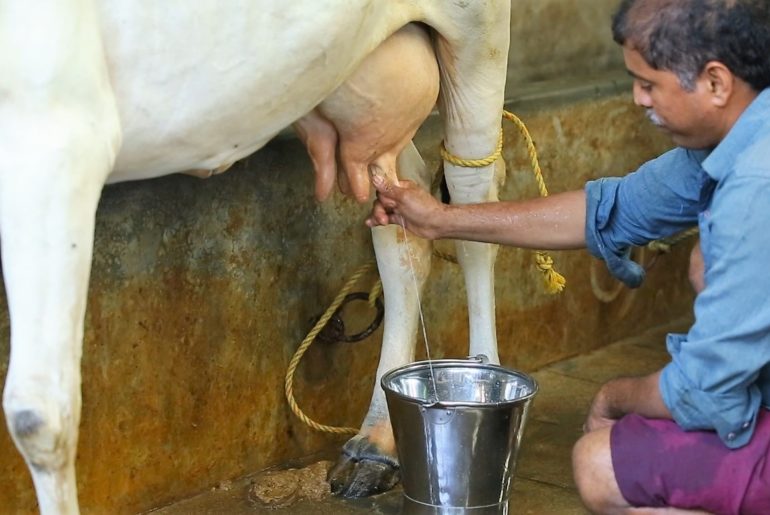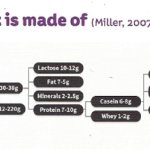Milk
contains two major groups of proteins — caseins and whey proteins. Desi milk
contains the A2 type of beta-casein protein whereas A1 milk contains A1 type of
beta casein. A1 protein is a natural mutation of A2 which occurred over 1,000
years ago and on its digestion, A1 protein produces beta-casomorphin-7 (BCM-7).
- There have been reports implicating A1 protein/BCM-7 in negative health effects like Ischaemic heart disease, Type 1 diabetes, autism, inflammatory response
and digestive discomfortetc, but the scientific community says that there is no such evidence. - Despite the lack of conclusive scientific evidence from human studies, several players have started marketing A2 milk with claims that it is natural, better, and free from negative effects which
is desi milk only. - The big brands of milk are marketing their brands as A2 milk which is priced exorbitantly high and in return earning huge amount of money with the help of myth created by themselves.
- In the name of Desi milk, consumer
are paying huge amount of money on milk which is marketed by the big milk brands. - Lactose is present in both A1 milk and desi/A2 milk and consumers should be aware that shifting to desi milk will not help them address lactose intolerance.
Moreover,
symptoms of digestive discomfort are also associated with lactose intolerance,
wherein an individual is not able to digest lactose due to a deficiency in the
lactase enzyme. Lactose intolerance, which is associated with milk sugar
lactose is different from allergy to a milk protein, though some of the
symptoms may be same.
Mr.
A. K Srivastav, Director of National Dairy Research Institute(NDRI) at
GLOBAL FOOD SUMMIT 2018 mentioned
that
“Our all the desi breed of
cows gives A2 milk and the cross-bred cow gives A1 milk, big brands says that
A1 milk is not good for health, but we have researched that A1 milk has no
harmful effects and there is no harm in the A1 milk and it is as safe as desi
or A2 milk”.
Indian
native breeds of cows and buffaloes are of A2 milk type and hence are a source
for safe milk. The A1/A2 status of cattle is determined by the two alleles for
beta-casein gene i.e. A1 and A2 and cattle may be homozygous for one type of
protein (A1A1 or A2A2), or heterozygous (A1A2). A1A1 cattle would produce only
A1 milk, A2A2 would produce only A2 milk and A1A2 cattle would produce milk with
both A1 and A2 beta – caseins.
- In the recent past, several
dairy units (local units and some organised players) in India have started
offering A2 milk at a premium to consumers. - Considering the lack of
conclusive scientific evidence for A1/BCM-7 ill-effects on human health, and
predominance of desi milk in Indian cattle, there is no need for consumers to switch to milk branded as ‘DESI’. - Bigger brands of milk know
that consumers are willing to pay a
premium in the name of safer milk. That
is why these brands are differentiating the two types of milk and marketing heavily on A2 milk so as to
play with the mind of the consumers.
All the research that have
been done for so many years on the two types of milk, have so far been not able
to conclude if A1 milk is less safe than A2 milk.
Both types of milk are
equally safe for consumption and both type of milks provide necessary
nourishment to the human body.



1 Comment
Pingback: Can I get organic desi cow milk for children in Ranchi? – Puresh Daily